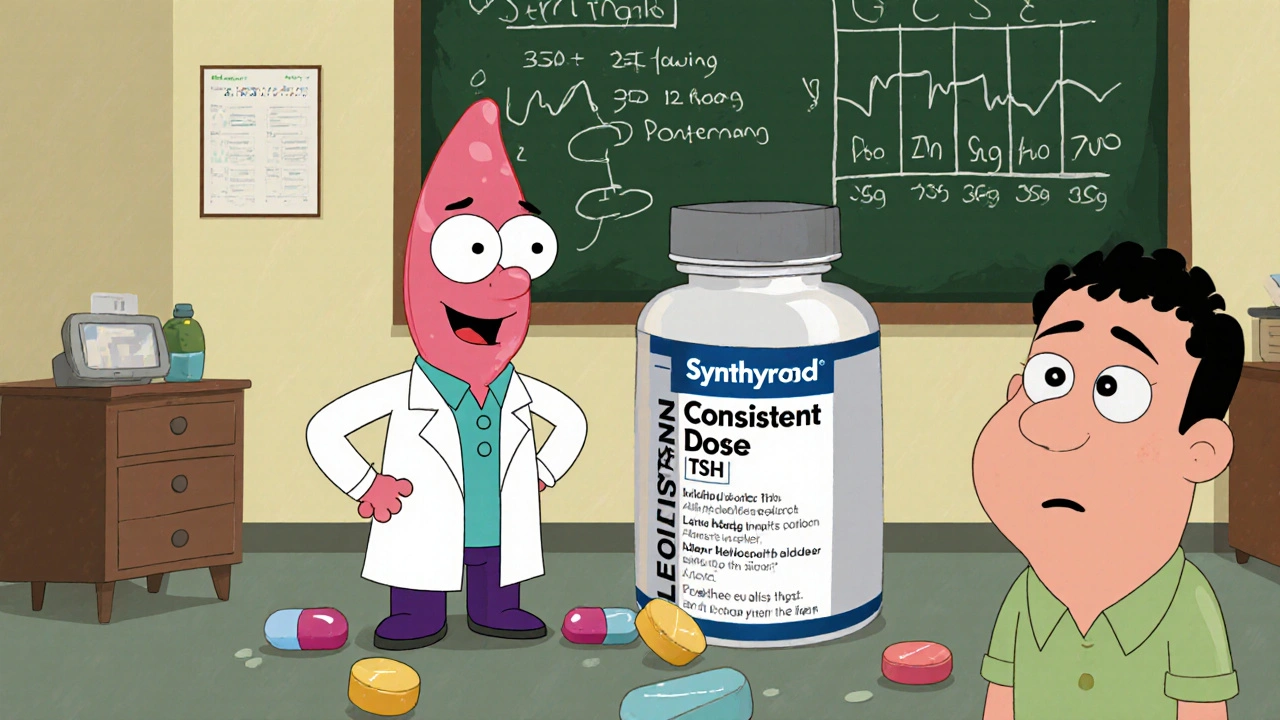Levothyroxine: What It Is, How It Works, and What You Need to Know
When your thyroid doesn’t make enough hormone, your body slows down—fatigue, weight gain, cold hands, brain fog. That’s where levothyroxine, a synthetic version of the thyroid hormone thyroxine (T4) used to replace what your body can’t produce. Also known as synthroid, it’s the most prescribed thyroid medication in the world. It’s not a quick fix. It’s a daily replacement for a gland that’s either damaged, removed, or just not working right.
Levothyroxine doesn’t cure hypothyroidism. It just gives your body what it’s missing. That’s why consistency matters. Taking it at the same time every day, on an empty stomach, and waiting 30-60 minutes before eating or drinking coffee makes a real difference. Even some supplements—like calcium, iron, or soy—can block its absorption. And it’s not just about the pill. Your dose needs to be fine-tuned over weeks or months. Too little? You still feel tired. Too much? You might get heart palpitations or bone loss. That’s why regular blood tests (TSH and free T4) are non-negotiable.
People on levothyroxine often wonder if other things affect their thyroid. hypothyroidism, a condition where the thyroid gland fails to produce enough hormones, often caused by Hashimoto’s disease, surgery, or radiation is the main reason most take it. But thyroid replacement, the process of using synthetic hormones to restore normal thyroid function isn’t one-size-fits-all. Some people need combination therapy with T3. Others find their symptoms improve with better sleep, less stress, or avoiding gluten. And while levothyroxine is the gold standard, it’s not the only option—though most doctors start here because it’s stable, predictable, and well-studied.
You’ll find posts here that dig into how levothyroxine interacts with other meds, why some people still feel awful even with "normal" lab results, and what happens when you miss a dose. You’ll also see how it connects to bigger issues—like fluid retention from certain drugs, adrenal insufficiency that can mimic thyroid problems, and how generic versions are held to the same FDA standards as brand names. This isn’t just about pills. It’s about understanding your body’s rhythm, recognizing when something’s off, and knowing what questions to ask your doctor. The right dose can change everything. The wrong one? It can make things worse.
Synthroid vs Alternatives: What Works Best for Thyroid Treatment in 2025
Synthroid and generic levothyroxine both treat hypothyroidism, but differences in fillers and absorption can affect how you feel. Learn which alternatives work best based on your health needs and budget in 2025.






